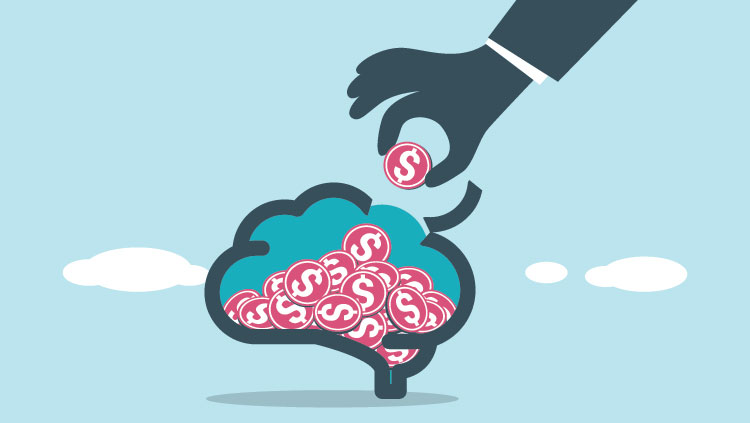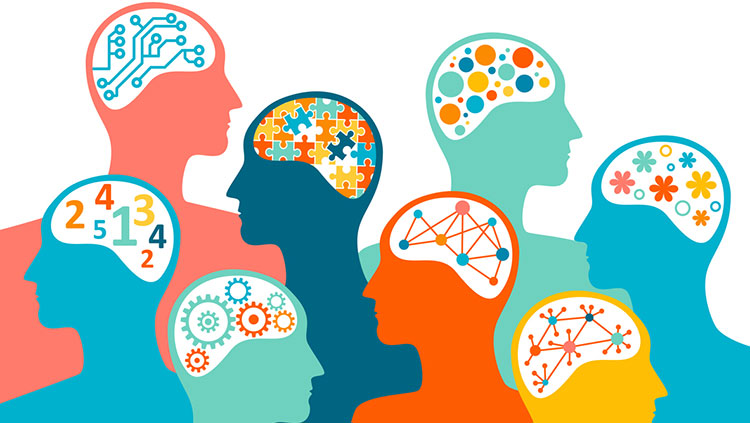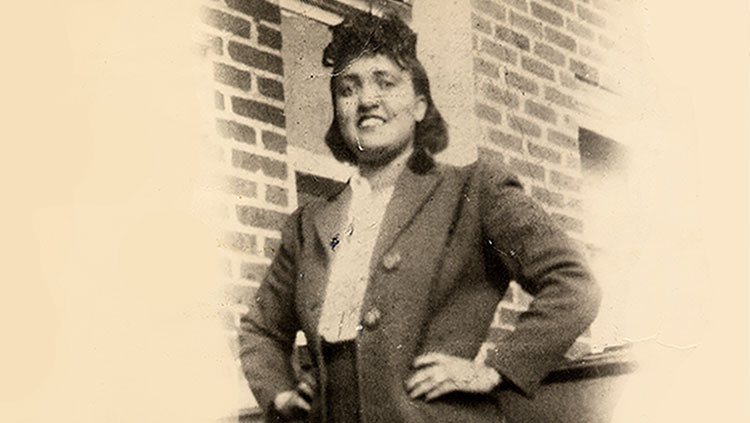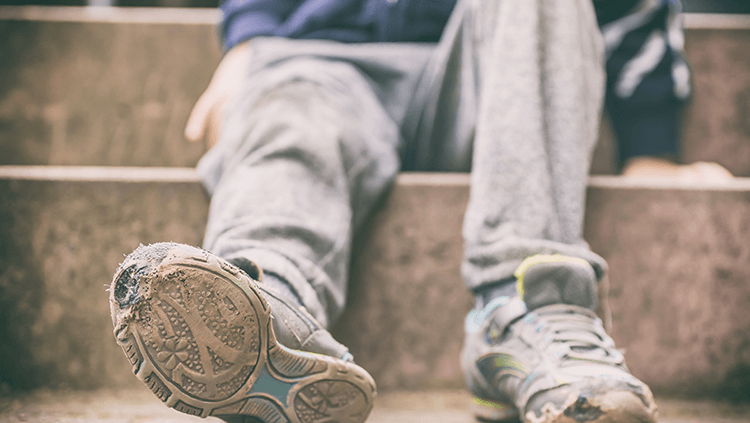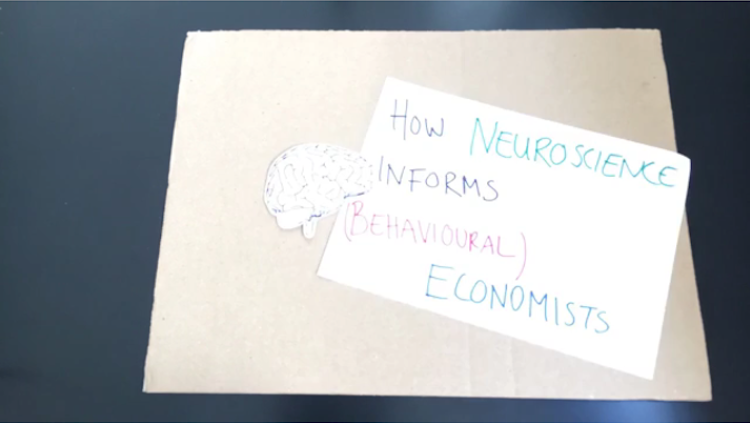My 29 Years in Solitary Confinement
- Published19 Mar 2019
- Reviewed19 Mar 2019
- Source BrainFacts/SfN
Robert King, a member of the Angola 3, was kept in solitary confinement for 29 years before having his conviction overturned. He discusses his experiences in solitary confinement and how it changed the course of his life forever.
This video is part of a series on Solitary Confinement, presented at Neuroscience 2018 for the Social Issues Roundtable.
CONTENT PROVIDED BY
BrainFacts/SfN
Transcript
As the professor spoke about, three groups of people who are in isolation, I fall in that group of number three, the third one. I think he described me actively. I look at that term, "Robert King, anti-solitary activist." Of course, I'll take that title because I am anti-solitary and for many reasons. I'll give you a few of those reasons.
As the professor spoke of, I belong to a group, and we became known as, "The Angola 3." The Angola 3 were three men who were sentenced to Louisiana State Prison in the early '70s for their political activism. They were sent to the Louisiana State Penitentiary in Angola, Louisiana. They continued there, their political education. Many of then had become activists. All of us, rather, had become activists and there were many more. Some of us had become activists, and we decided to take our activism further. We decided that being placed in solitary confinement, of course, the history of ... If you know anything about A3, the history of Angola 3, the three men who were charged in crimes, separate crimes, they were subsequently exonerated from these crimes.
However, nevertheless years earlier, as a result of being sent to prison and placed in solitary confinement, they were kept there for over 100 years totally. As the professor pointed out, I did only 31 years in prison, 29 in solitary. Of course, you have to know about the solitary in Angola. Solitary in Angola is, you're in a six, by nine, by 12 foot cell for 23 hours a day, seven days a week sometimes. All the time, seven days a week. Sometimes you got an hour out, but every day you did not get an hour out because for security reasons, they had to come through to shake down. You only have 12 hours in the course of a day of daylight. You could not shower. If there were 15 men on the tier being let out an hour at a time, single, you could not cover every individual in one day. In any event, we were held in isolation for 23 hours a day, seven days a week.
Of course, we were forced into activism. We understood the reason why we were in prison because we were all exonerated after many, many years, and decade. We had reasons to resist. All the evidence showed that we were actually innocent of the crime and that we were framed. We were only targeted because we were valued members, at that time, of the Black Panther party. We never denied that, but the fact is that I wasn't in prison. The crime in which my two comrades were subsequently charged with, which was the death of a correctional officer. Even though all evidence showed that they did not commit the crime and, again, they were subsequently exonerated, they were charged for this crime. They were in prison when it happened, but I was a 150 miles away. I was not even in Angola State Prison when this murder happened. I had never met the man in my life, who was killed, electrically killed.
However, nevertheless, when they sent me to prison, they sentenced me, not what the judge did, he sentenced me to a certain amount of years. They sentenced me to solitary confinement. It was decreed by a warden that I would do my time in CCR. CCR in Angola means, "Closed Cell Restriction." Again, it's a six by nine, by 12 foot cell where you are there 23, sometimes 24 hours a day. It was, for 29 years, that I was habitated in such a small space.
What did I do? People wanna know whether or not I have psychological problems, whether nor not I am crazy, or "How did you not go insane?" I sort of look at them and I tell them, "Hold up. Wait a minute. I did not tell you I was not insane" because I do not think anyone could go through ... I didn't mean that I was psychotic or anything like that. I knew this, that being placed in an environment such as a six by nine, by 12 foot cell 23, sometimes 24 hours a day, no matter how it may appear on the outside, you weren't saying ... I noticed some differences. Six months after I was in solitary confinement, I noticed some physical difference. Of course, I exercised and got that straightened out, but I noticed some other differences and so forth.
These are the type of things that we had to overcome. We filed. We did some things to minimize our condition, but I think the biggest thing that allowed us to survive the physical, maybe the psychological impact. I still say, while I'm not psychotic, I don't think that I'm totally sane neither. What helped us to kind of stay afloat was the fact that we had to come politicize and we were able to put into context what was happening to us. Of course, we did the best we could. We filed. Being in solitary confinement, you're deprived of a lot of things. You don't get the same things as general population gets. I
It took seven years to get on the yard, one day on the yard. It took a federal court to make a ruling to allow us to get one hour on the yard. Of course, everybody else in the prison, including death row, had time on the yard, but CCR did not have time.
We managed to get some things done because we filed ARPs, Administrative Remedy Procedures, that allowed a person to file some type of procedure. An Administrative Remedy Procedure is not like a petition that you would file in a court of law where it would be decreed that this is wrong.
In an institution, when you have an administration making these kind of decisions, they could be arbitrary. As a result of pressure from different groups, they can make a decree and say that, "Well, if the court said you should have this, what we'll do, we will agree." That will prevent the court from making such a ruling. It won't go into law. What will happen is this, that eventually, that administration, the prison system will go back on its word and then take everything back. Whatever thing that you had, they would try to replace it and we would have to go back. It's almost like pushing a wheelbarrow that's loaded with rocks. You get up the top of the hill and you come tumbling back down because once we struggled to get to a certain spot in prison, to get them to treat us semi-humane fashion, another administration that arbitrarily that comes in and just restrict us from doing anything and took all of those so-called privileges that were given to us.
We had to continue to struggle. I imagine that really was the thing that kept a lot of us going because we were constantly fighting to stay afloat. Constantly fighting to keep some level of normalcy. It was almost impossible to do.
However, our efforts were, I have to point this out, that in spite of our being in solitary confinement, we understood that we made the connection between prison and solitary confinement, and chattel slavery. We made a connection that, in spite of being in this condition, that we had a right to be treated humanely, and especially when there was doubt that either of us had either committed the crime. There were no doubt that I was not in prison when this crime was committed, but nevertheless, I was being punished for it.
We had to fight. We were forced to struggle. We were forced to stay afloat. We had to, either fight or sink. I think we chose to fight, and I think it was being politicized that allowed me, it allowed us, to stay afloat.
In the course of all of this, there was some other people and many people that were doing some of the same things that we were doing around the world and around the country. They were fighting against prison conditions and unjust prison conditions. We managed to get the ear of a lot of people. As the professor pointed out, "Amnesty International," it's one of those organizations. Amnesty National, here in the states and Amnesty International, they got onboard with us and they decided to take our case. They spoke of the inhumanity of solitary confinement. Solitary confinement, where people are placed there, not because of anything that they did. In fact, Albert and Herman, and myself, and others, were placed in solitary confinement, not because of the things that they did, the thing that the administration say that they did, and it was proven later that they did not do these crimes.
We tend to point out that solitary confinement is a moral issue. It was a moral issue in our case and when you're placed in solitary confinement, because when a judge sentence people to prison, they don't sentence them to solitary confinement. They send them to prison to be not, I can't say rehabilitation because that rehabilitation left a long time ago when Nixon came in way, way, way back. They send people to prison for adjustment, to be readjustment, if not to be rehabilitated. There's no such thing as readjustment when they place you in a solitary confinement, a six by nine, by 12 foot cell. How can you adjust to that? Being a human being, you cannot adjust to being perpetually in a six by nine, by 12 where you walk three paces that way, three paces that way, three paces that way, and that's your total environment. Your navigational skills leave quickly, fast, and in a hurry.
I lost my navigation skill a long time ago. I lost sight one time. Six minutes after I was placed in solitary confinement, if I didn't recognize an individual voice, I couldn't see your faces. It wasn't until I started to retrain my eyes, which is another story. I can't get into that, maybe in the question and answer period, I'll get into that if someone asks a question. I begin to retrain my eyes. I could not see your face, ma'am. I could not see yours either. I could not tell the color of that purse at one time. This is how I was impacted initially by solitary confinement. It wasn't until I started to retrain my eyes and to follow it against what was going on, and I found out exactly what was happening. It was said in not no logical terms, but only in medical term that I was getting old and my eyeballs were being elongated. The pupil was being offset, which may have been true.
I found out that I wasn't losing my eyesight based on that. I think I was losing my eyesight based on the fact that my sensory, my perception, my distance was off. My navigational skills and I think it impacted my sight. I cannot explain to you how this works, but a neuroscientist can. It can give you the terms, I can give you layman's terms. I have to say this again, that solitary confinement in the United States and subsequently around the world, because people around the world pick up what America do, but solitary confinement in America is a practice that should be abolished. It should be seen as a moral issue. There is no barometer to how long a person can stay in solitary confinement.
Until our case, we filed a case in a federal court through US Court of Appeals [inaudible] Court of Appeals ruled in our case that my 29 years constituted cruel and unusual punishment, but it did not abolish solitary confinement. It said that it constituted cruel and unusual punishment only.
I think solitary confinement should be abolished. As we know it, It should be abolished. I think that's the focus because solitary confinement, it deranges people. It causes people to, if they're not psychotic, pretend to be psychotic comes into place. It mal-adjusts individuals. I was sent out of prison and into society because, when the court overturned my case and reversed my issues, said that I was innocent, I had made all kinds of showings of innocence, I walked out of prison the same day the court reversed my issue.
Some might say, "Well, that's validation, you were justified." But it wasn't, I had did 31 years in prison and 29 in solitary confinement for a crime in which I hadn't committed. From that day on, when I left Angola, I said, "I might be free from Angola, but it never will be free of me."
I made the promise that I would focus on solitary confinement. It impacted me personally, and if it impacted me personally, I can imagine how it was for other people. I know for Herman and Albert, who were subsequently exonerated from the crime in which they were charged with. There are so many other people who are not in the spotlight, who did not have the focus, and did not get the support or had the support that we had, that did the time in prison, died in prison, and some are still in prison. The focus on solitary confinement for me, that is a commission for life because there are other people in solitary confinement in prison. Not just in America and Louisiana, but around the world. There are people in prison who are unjustly there and their cases need some light shed on it.
I think the thing that we're doing and Dr. Sigmund and the rest of the team are doing, I think what we're doing is adequate. I think it will [inaudible], but it's out there. I think people will get an idea that prison, especially solitary confinement, is an issue that is immoral. It is unjust, and it should be abolished. Thank you.
Speaker 2: Thank you very much, Robert. He is an inspiration to the rest of us. By the way, don't judge the impact of solitary confinement by the resilience that Robert has shown, despite the fact that he has paid a heavy price in terms of its impact on him. There are others that are much more impacted.
We have about three or four minutes, if anyone would like to ask a question or make a comment, and then there'll be time at the end for more discussion. Anybody like to raise any questions? Okay. Oh yes, please.
Speaker 3: I'm just curious, what was helpful for you as you transitioned back into society [inaudible]?
Robert King: What was helpful to transcend back into society? Well, by this time, we had developed sort of like a local following. People had learned of our case and had gotten onboard, and had decided to advocate on our behalf. It was these folks.
In fact, when I walked out of prison that day, there were a number of people who came to the prison with me and I wasn't supposed to leave until 12 o'clock midnight, but the warden decided, because the people were at the gate waiting for me, they'd say that they would stay there all night until they released me. They decided to release me early. We had people who we advocating for us and who were in our corner.
Speaker 2: Thanks for your question. Any other? Yes. If you have a question, best to go to the microphone.
Speaker 4: Okay. Thank you very much for sharing your experience. What I'm really curious about is, what you did to cope during those 29 years and even a little bit more about, maybe the effects. The fact that you couldn't recognize faces, I think is just such a powerful example of what can happen to someone that never would've crossed my mind. I'm just very curious what you did to cope with the solitary confinement and any other kind of symptoms you noticed for yourself.
Robert King: Well, as I pointed out, we had become or I had become politicized. I had put in context exactly what was happening and why things were happening with me. Being able to place that in context, I was able to weather the storm. The fact also, I made note, once I became politicized, I made note that event though I was in prison unjustly, I would not allow prison to get in me. I worked at not allowing the prison to be in me and as a result of that, I worked at that. It's not easy because prison definitely, you can become institutionalized in prison. It is meant to become institutionalized. I worked at it, we worked at not becoming institutionalized. I think that, in itself, our being politicized, kind of aided us in this.
Speaker 2: I think we'll have to move on, but perhaps, and there will be time in the end, and in addition, we will wait outside. I would like to offer another round of applause.
Also In Law, Economics & Ethics
Trending
Popular articles on BrainFacts.org


